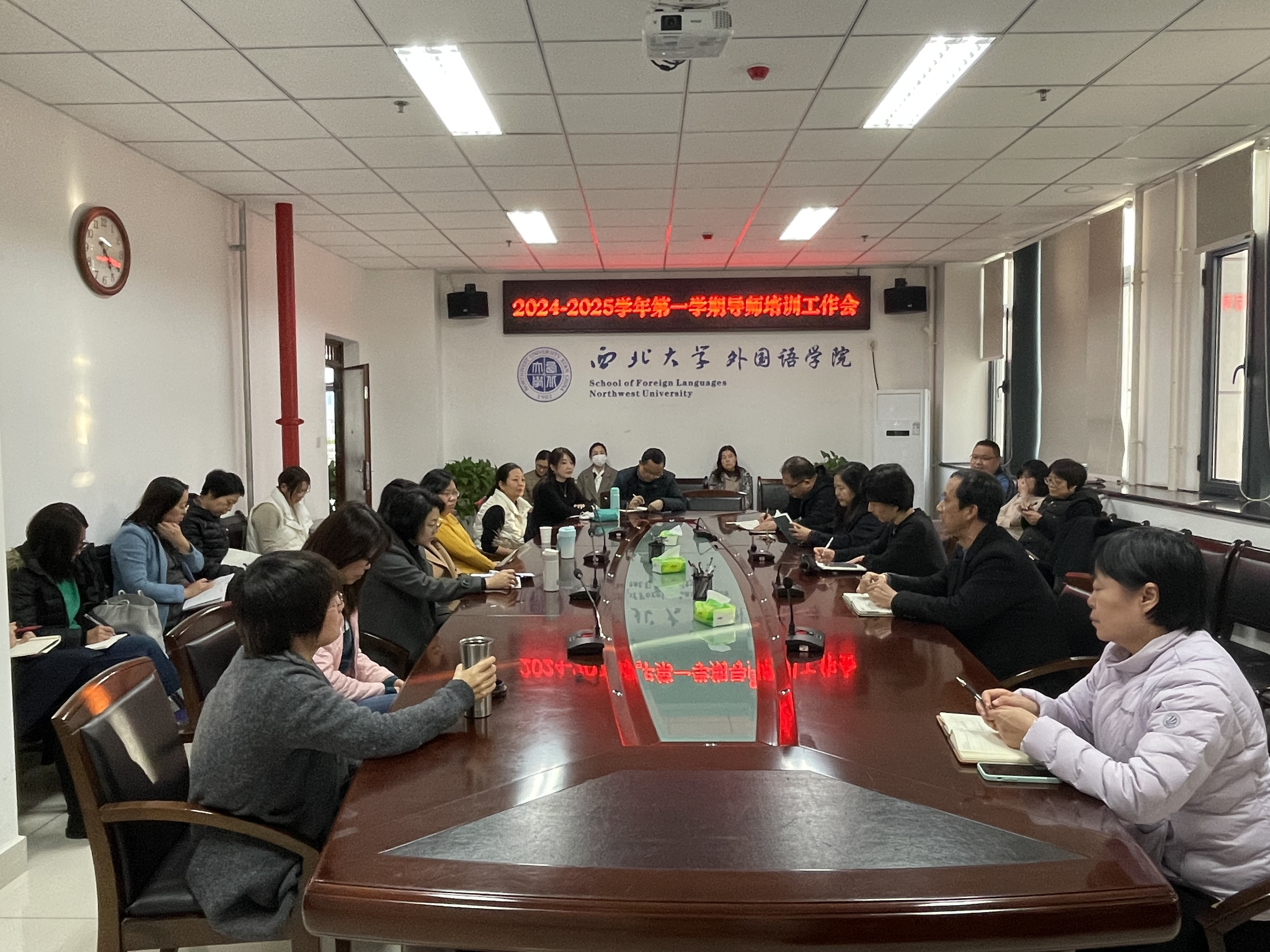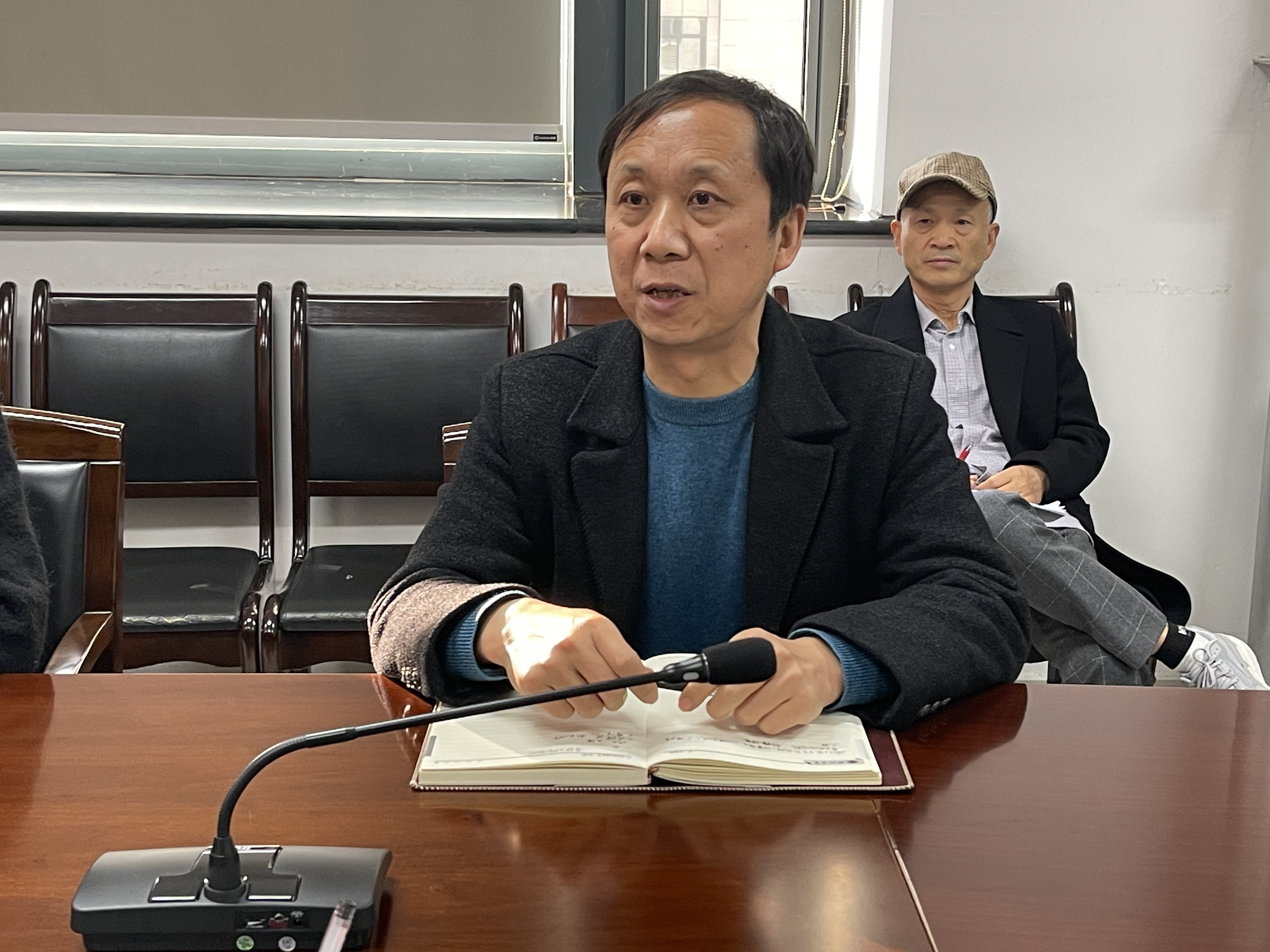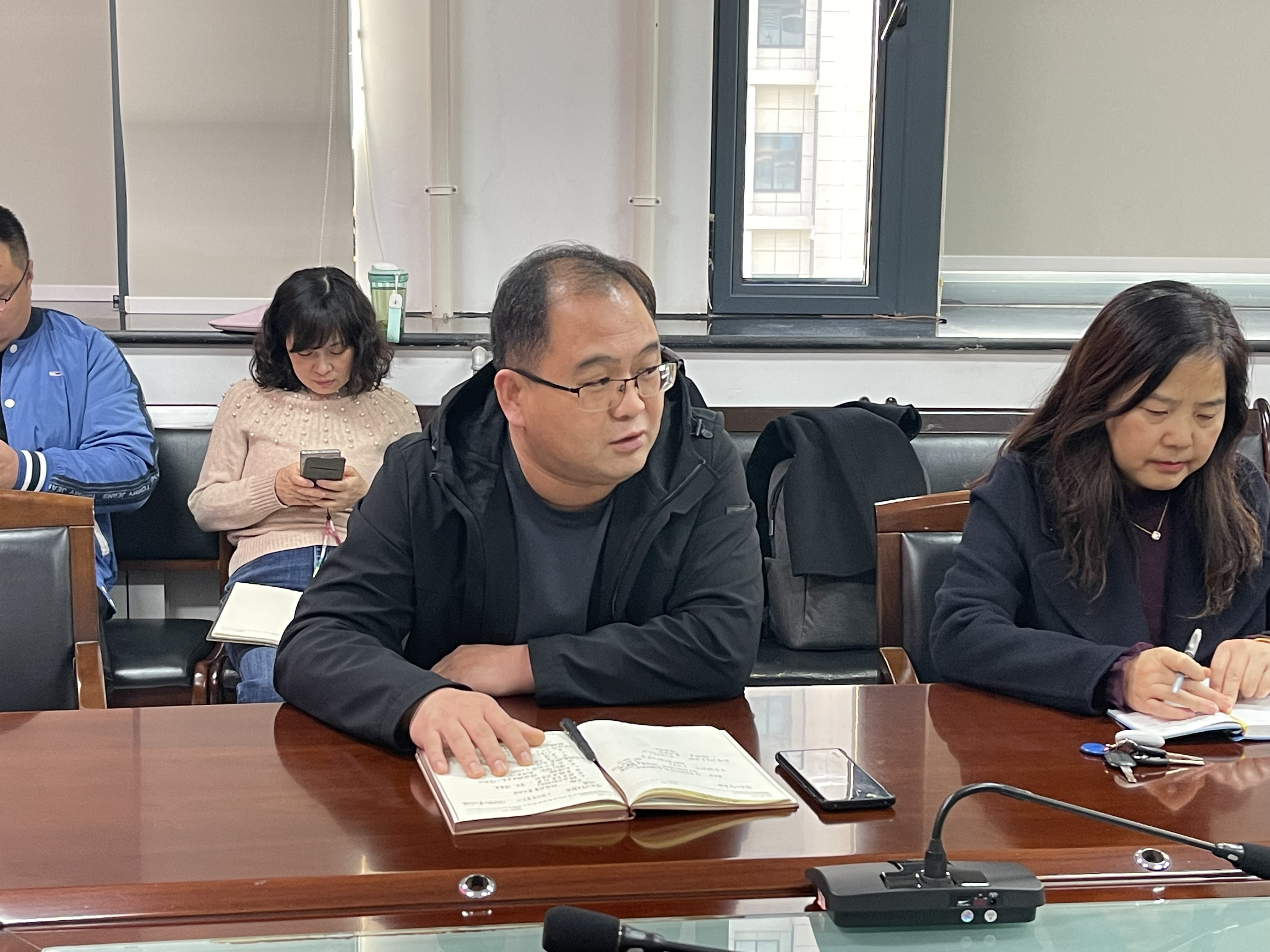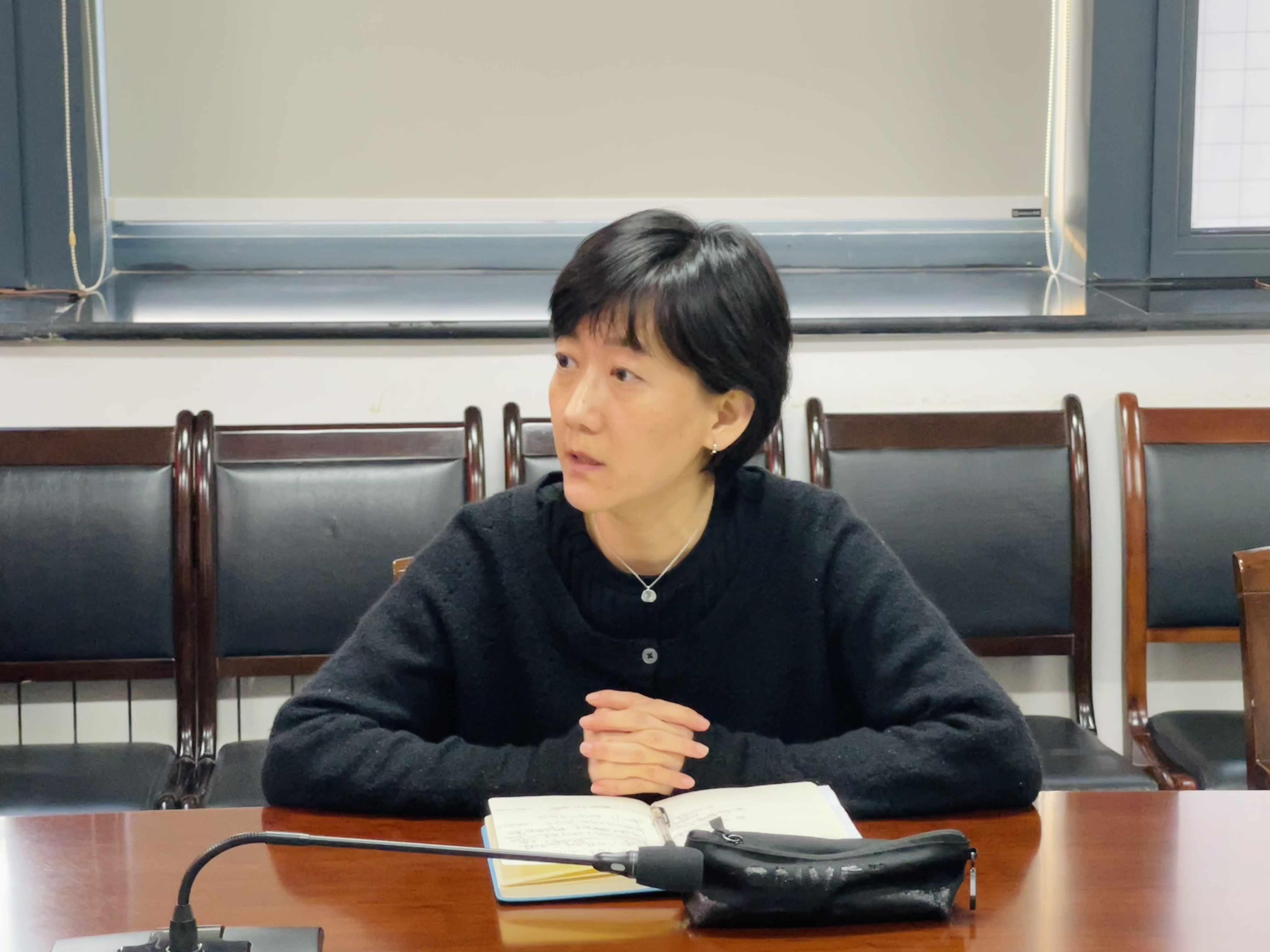In order to enhance the quality of graduate supervisor team building, clarify the responsibilities of supervisors, and improve the handling of the supervisor-student relationship, the school held the first Graduate Supervisor Work Meeting of this semester on the afternoon of November 20 in the meeting room on the fifth floor of the West Campus Building. The meeting was attended by Zhao Zhihou, the Secretary of the school's Party Committee, and Liu Jianbo, the Deputy Party Secretary of the university, and was chaired by Dean Cao Ruonan.

At the beginning of the meeting, Zhao Zhihou shared his experiences with the attending faculty, based on real cases, discussing how supervisors should correctly manage the supervisor-student relationship under the new circumstances, with a focus on the ideological education of graduate students. He emphasized that contemporary university students face many challenges and concerns. They are both “fragile” and “resilient,” so it is essential to pay attention to their mental health while also guiding them to express themselves rationally in online spaces and to voice their concerns through formal channels.

Subsequently, Liu Jianbo reported on the employment situation of graduates and related issues concerning safety and stability. He pointed out that, based on the recent recruitment information release, registration status, and student participation in job fairs, there are common issues students have such as excessively high expectations for job positions, unclear personal goals, lack of understanding of policies, and over-conservative geographic preferences, all indicating a “narrow perspective.” He hopes that supervisors can clarify the policies during their guidance, help students understand the current employment situation, and guide them in developing a clear career path.

Finally, Cao Ruonan explained the arrangements and requirements for the periodic qualification evaluation of the degree programs for 2025. She analyzed the relationship between the construction of degree programs and the strict control of training quality in light of the graduate admissions situation for 2025. She reiterated that during the degree application process, supervisors must set high standards and be vigilant. For example, the 2024 cohort's MTI theses must be based on translation projects, while the 2023 cohort's proposal defenses and the 2022 cohort's pre-defense meetings should focus on guiding students in areas such as thesis topics, content frameworks, and ideological aspects, addressing issues proactively to improve the quality of student papers.
